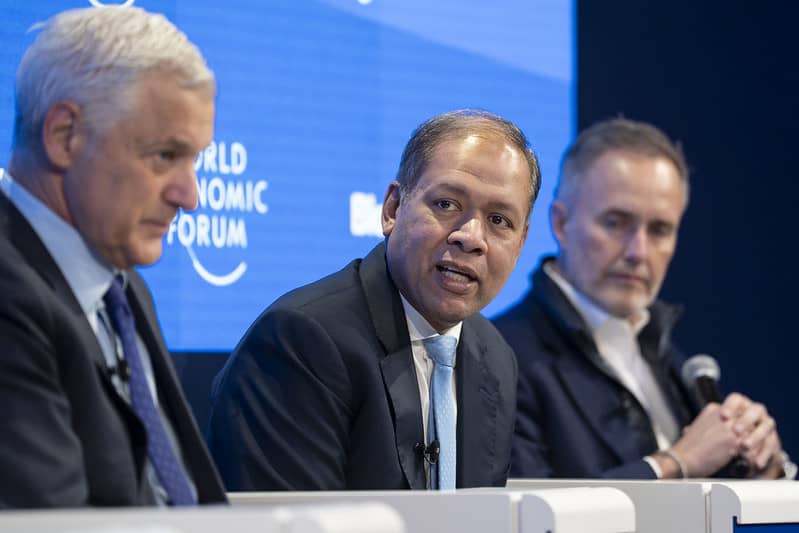Barclays Wants Santander
- Written by: Gary Howes
-

Centre: C.S. "Venkat" Venkatakrishnan, Group Chief Executive Officer, Barclays. Copyright: World Economic Forum / Valeriano Di Domenico.
The Barclays boss is being nice to Chancellor Rachel Reeves. He will need her onside if he is to make a play for Santander.
"The talk is fast turning towards when not if Santander UK will be sold. The charm offensive of the week is Barclays’ CEO Venkatakrishnan and what he is saying about UK Chancellor Rachel Reeves and her less than popular policies," says Humphrey Percy, SGM Foreign Exchange Ltd.
Reeves has been universally panned for delivering a series of tax hikes on businesses that economists say has effectively stalled UK growth.
But, speaking in Davos, the Barclays boss cut a lonely figure of praise, telling his fellow business leaders to give Reeves time. "The UK has a lot of potential. The new government has laid out plans to realise that potential. It is new, just six months old, so you just have to give it time to get the policies in place, because these things are not easy," he said.
The comments won't surprise some industry onlookers, as Venkatakrishnan would be well advised to get Reeves onside if he is to make a play for Santander.
Percy thinks no other UK institution would benefit more than Barclays in a Santander buyout:
"Barclays share price consistently trades at a big discount due to firstly its domestic market position which is some way behind NatWest, Lloyds and HSBC but secondly its over-reliance on trading and investment banking in the eyes of market analysts.
"NatWest and Lloyds are almost certainly ruled out as suitors due to their existing domestic market positions but access to Santander’s clients, staff and mortgage book would transform Barclays and, importantly, would water down those welcome but outsize revenue flows from trading and investment banking.
Santander has about 14 million customers and 444 branches in the UK, and the Financial Times has reported that it is "exploring a number of strategic options", including exiting the UK market amid frustrations over-regulation, costs and poor returns on investments.
"The alternative for the UK Chancellor would be much harder to countenance politically: the acquisition of such a large UK bank by a foreign rather than a British bank," says Percy.





